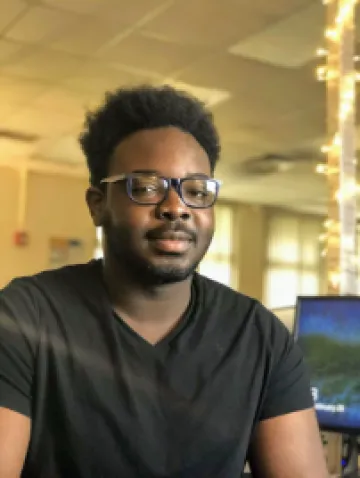Student Spotlights: getting to know our CS students
There is no question that the Department of Computer Science is home to amazing faculty, staff, and students. I wanted to provide an opportunity for those inside and outside the department to learn about our students. The Student Spotlight provides a platform to tell our students unique backgrounds, experiences, and stories. After reading, I know that you will agree- our students are incredible.
Thanks for reading! - Martin Marquez, Director of Academic and Support Services
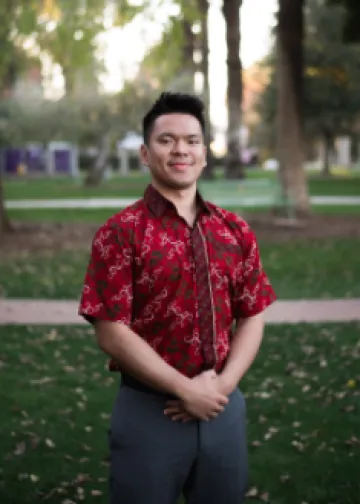
Hamzah Firman
My name is Hamzah Firman and I am a Junior at the University of Arizona. I originally started off as an Architecture major and after my first semester I decided to change my major to Computer Science. One of my good friends recommended the major because it's challenging and rewarding at the same time. From there I continued to do my research and I came across a video where CEO's of top companies were talking about how technology changed their lives, and I knew that Computer Science was the route I wanted to go.
While I was taking CSC 110, I was really struggling with the content and fortunately I had a mentor that worked with me 1:1 to really help me understand the concepts I was struggling with. This guidance really helped to establish my confidence in not only my computer science courses but in my career aspirations. I started my career development during my sophomore year and really formed through my connection with my mentor; he has provided resources, and really guided me through the internship search process. Three things I recommend: I would say to practice a lot, to not be afraid to get rejected or fail in an interview, and to constantly reflect on your experiences; this helps you to understand areas of improvement.
One piece of advice that I would give someone first starting off in computer science is to be patient. Take it one step at a time and really take the time to understand concepts. Lastly, don't compare yourself to anybody else and to stay focused on those resources that will help you personally improve. At the end of the day, have fun!
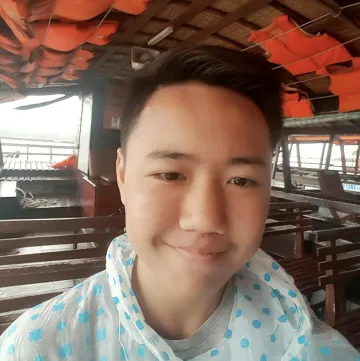
Hung Le Ba
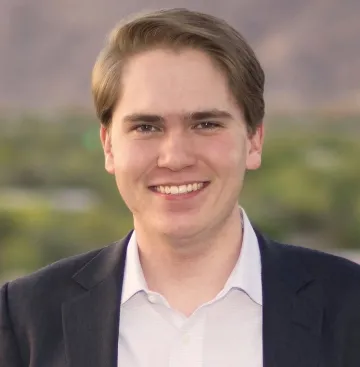
Alex Melnychuck
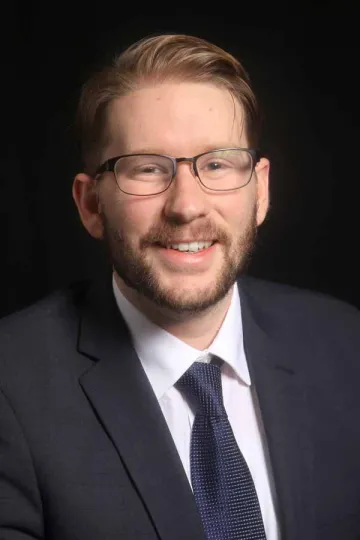
Connor Scully-Allison
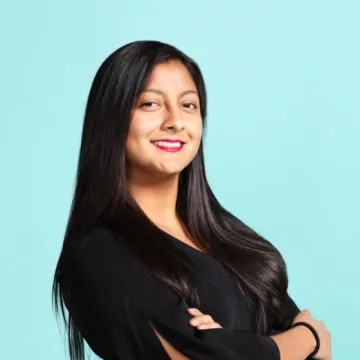
Kiara Hernandez
Kiara Hernandez is a Senior majoring in Computer Science and minoring in ECE from Douglas, Arizona.
In your experience taking CS courses, are there any in particular that are your favorite or the most fun?
I definitely like the courses that involve more programming; in particular CSC 335 where you learn more about MVC systems, etc. and I really enjoyed the group work aspect because of the feeling of working in the field. I really enjoyed working on a fun project and working on a project that required other individual's contribution.
Why did you decide to pursue computer science?
Coming out of high school I didn't know what I wanted to do and nothing really caught my eye, but I did know that I wanted to help or to make something that would leave some sort of mark. I took Computer Science as a leap because I took a few computer courses in high school, but didn't feel fully committed at the time. I decided to go with it and ended up really liking it so it's a blessing in disguise.
In your time as a University student, what kind of student organizations have you participated in?
I've been an officer in WICS for a few semesters and I really enjoy the community that it gave me in a male dominated field and it helped to feel welcome. I also participated as a CS Ambassador for a couple semesters. One semester I attended the Gave Dev Club and participated in a Game Jam. My favorite club is WICS because the purpose really resonates with me.
If you could give advice to an incoming student about what to expect, resources, etc.
Expect to be intellectually challenged. The courses aren't easy and it's definitely a new field / way of learning but it gets easier as you learn more and get used to it. Get involved with the department as fast as you can. Go see your advisors, going to the tutoring center was invaluable my freshman and sophomore year (that's also where I met a lot of my close friends).
Can you talk a little bit about your internship experience with GoDaddy?
I worked with GoDaddy my sophomore year and I learned about the opportunity through Grace Hopper. My friend, Meredith Larabee, invited me to a GoDaddy party where I was able to network and mention that I was a sophomore that knows python. I later got an email from them about an opportunity for sophomore's that know python, so I applied and went through online interviewing. While I was there, I primarily worked on front-end development even though I had no web development experience. GoDaddy was really patient with me and they taught me a lot and we used a lot of pair programming. I never felt like I was left behind even though I was inexperienced at the time, I learned a lot and later saw in CSC 335 and 337.
What is feedback / advice you would give to a freshman looking to land a future internship?
Coming in as a freshman with no computer science experience, I was gathering information from everyone I could. I would recommend going to resume review sessions, Career Fairs to learn more about what they do and how to talk to recruiters in general. In general, constantly searching for advice; going to advisors, tutors, T.A.'s etc.
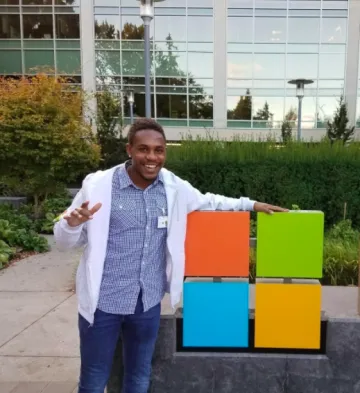
Korre Henry
Korre Henry is a junior pursuing a BS in Computer Science at the University of Arizona. Originally from Los Angeles, Korre moved to Arizona as a freshman attending Mountain View High School in Marana, AZ. Korre is a current CS tutor and member of the CS Ambassadors.
Why did you pick Computer Science as your major?
Well towards the end of junior year, the question of "what do you wanna do after high school" and I had to ponder on it. Initially I was going to get a business degree because I heard it made a lot of money. But then one of my mentors had informed me that I should pick something that I am actually good at and could see myself being comfortable with doing for a long period of time. At the time though, I was a Sound Engineer for my church and so I thought that I could get a degree in that. And I quickly found out that the job growth expectancy is pretty average. So then I stumbled upon computer science, I took a leap of faith. The funny thing about it is that, in my mind I had simply convinced myself that "whether it's hard or not, people say it's pretty cool so I'm sure ill be fine".
Tell us about your internship experience this past summer.
Last summer I interned with Microsoft under what is called the New Technologists internship program. This program is commonly referred to as the "one that got away" program and is typically geared to students that may have not met the bar for the SWE Internship but showed high potential. During this program you are grouped together with a team of 5. What they don't tell you is that this program strategically picks candidates to be grouped with others that are not as compatible as you might expect. In my team of 5, I quickly found out that these folks were different and I had to find a way to best communicate with them in their respective manners. You learn some of the most interesting things about people, some people want you to be aggressive, yell argue with them, argue with them when deriving a solution to a problem, while others may want you to simply show that you considered there idea and whether it's implemented or not they seem to be satisfied with the notion that their idea was discussed. And you may even find that others may be somewhat immature in the sense that they want their idea implemented (no matter what the cost). The main thing to point out here is that people are people. Just because they work at X company, doesn't mean you are guaranteed to get along or have a smooth time collaborating with them. Our group project was to build a web app that solves the problem of "dismantling forms of mis-information". For this project we used React, Redux, JavaScript, TypeScript, CSS, HTML, Bing News Search API, Bing Cognitive Services - Sentiment Analysis. Succinctly we aimed to give the user ( a person who reads news articles) more information about the content they are digesting as opposed to just simply reading a polarizing article and believing something that has bias in it. For this project I was elected the Tech Lead based off of my high technical competency for the languages we were using at the time. This way if anyone had a problem they throw the problem my way and say "hey your Tech Lead, it's not working... so fix it". As unsettling as that may sound, I liked being the one that my teammates could go to for help. It is fun knowing that I can help my team out when they need it the most. In other areas tho I found myself being the one stringent about time management, and how our user stories and potential solutions were solving the problem for our user. I realized that as cool as the Title sounds, it comes with a lot of pressure and responsibility. I recall having 1 on 1 meetings with some of the Microsoft Engineers and Product Managers, they constantly referred to me when team morale was down or if the progress was not where it should be. Naturally I took it to heart because I felt that it might be unfair that I should be the one to blame for a teammate's rate of producing code or if their attitude is not the greatest this week. But like anything in life, I had to adapt. I found myself studying the way each person on my team of 5 acts. What they respond best to, why they become upset at certain topics or ideas, how they best communicate, and how to build rapport with them. Most truthfully, these are the things in which I learned during this internship, it was how to be a leader. And I believe as a byproduct of this, I was offered to be a Software Engineer Intern at Microsoft for the summer of 2021.
You are currently a tutor in the CS Tutor Center. Why did you want to be a CS tutor and how has this experience benefited you?
I wanted to be a CS tutor because I wanted to help people quite simply. I am fascinated by the way in which people understand things. I am a true believer in the philosophy that "concepts are not hard, but rather people make them hard". I mean think about it, everything sounds hard until you actually understand it. The notion that some things are just hard to understand is the most satirically contradicting thing that I have ever imagined. But in short, many students and people in general feel that computer science is hard, and I want to show them that it's actually quite easy when you think about it.
What memorable experiences have you had in the department? (great opportunity to discuss your first time being involved with HackAZ).
My first hackathon was with HackArizona and at the time I was not very confident in my coding abilities. I had only taken CSC 110 and felt that I wasn't even confident in python at the time. Fortunately a friend of mine told me to come with them and I just thought I would sit around and watch them code. But the moment I arrived at the event, I quickly realized that the CS community was bigger than I had originally conceived. I was not aware that all these companies like Microsoft, Facebook, Google, Amazon, Qualtex, etc. were so open armed when it came to helping out a fellow programmer in lieu. The excitement of the crowd got me so worked up that I decided to ditch my friend and work on my own project. I took on the Drone Hack, hosted by Jacobs Corp. The challenge was to use social engineering to crack the network password to a 1 of the 5 drones that were in a net cage. Once we cracked the password then we needed to find a way to fly it via a device that was not the original controller. I feel like hackathons are where you tend to learn the most because I recall learning so many unnecessary algorithms, concepts, or even unrelated computer science topics just to find a way to crack into the network. Ironically I had known nothing at the time in regards to networking but ended up learning how to spoof and intercept packets from a network that was protected via WPA 2 encryption. Which was unnecessary because I ended up cracking the password using an unrelated web scraping tool that I made.
Then I made my own SDK that interacted with the drone, and I trained it how to fly, do turns, flips, back roll, land and even take off. The connection I built that drone over the course of 48 hours and no sleep was insane! It was like my own child. I believe that it was that night, when I realized I love this and that I want to produce CS as a career because it's something that I could do without getting paid for. As a byproduct of that experience, I was exposed to concepts that I would later be taught in CSC 120 and reinforced in 210.
What advice would you give a student in the department?
If i had any advice to give to any CS students, it might be just to never give up. Note that there were many things in your life that seemed challenging or even unbearable but hear you are now. So when it's crunch time don't wind down, crank it up a notch! I suggest treating this major like a pool of resources. Not everyone needs to be a Software Engineer at some big firm, you should shape your experiences in this major around what you want to gain from it. Note that not everyone CS major needs to join every club or go to every hackathon to be a "true cs major". Point is, do what interests you, and be sure to plan your road ahead. So for example if you really want to do stuff with AI and robotics i would not recommend going to a bunch of unrelated AI and robotics hack-a-thons or clubs if it's not something that really interests you at the time. And lastly, be open minded, you never know you are interested or dispassionate about a topic until you immerse yourself in it. So don't be afraid to try out unfamiliar CS related topics.
What are your career goals?
When I graduate I want to become a Software Engineer at either Microsoft, Google, Tesla or Facebook. But after I have tenure as a Software engineer, I aspire to push back on the code and dive deeper into the more logistical or administrative side of innovation. I do not envision myself coding forever. I see myself as another Tech Lead over a big project that's changing the world, CTO, or a CS and Business analyst.
How do you hope to change the world/leave your mark?
Simply put, I am not sure what problem I have the passion to solve at the moment. Naturally I feel most satisfied when I know that my work has helped someone that needed it the most. So I suppose I would continue to search for what I feel passionate about and then jump along that team. In time I would want to be in charge of implementing that change or "vision" for how to help people one day so I think to be revered as someone who was the person overseeing the change or solution to a problem; I think that would be where I would want to make my mark.
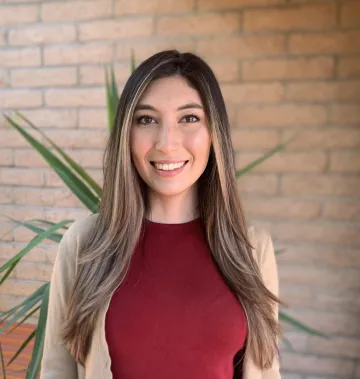
Arianna Boatner
Arianna Boatner is a junior pursuing a BS in Computer Science. Arriana is a native Tucsonan and attended Pima Community College before transferring to the University of Arizona.
I was at Pima Community College the first year and I still did not know what I wanted to do.
I really liked math, was not interested in any of the general education courses, and even considered other career options such as business, being a dental hygienist, going to public health, but none really stood out to me. When I heard about programming it was like a light bulb in my brain went off and it sounded very interesting. I decided to take an intro to programming course at Pima to see if I would like it and at the same time decided to contact the UA CS advisors to see what classes I needed to take to get a BS degree, in the case that I really did end up liking programming. After the first week of being in the programming course I realized I really enjoyed it and it was very exciting to be able to challenge myself and learn something out of my comfort zone. It was really awesome to learn how to program and writing my first program was really exciting and rewarding. I completed 2 programming courses at Pima before transferring to the UofA.
The first semester at the UA was a little rough. I went from going to a 13 student classroom to a 200+ student classroom. Adjusting to the times of the classes was difficult, because at the UA classes usually are 3 times a week for 50 minutes whereas at Pima it was twice a week 2 hours. Trying to find the right resources early on the semester was a challenge. I did not know about the tutoring center until about a quarter into the semester and if I would have known about this since the first day, it would have been an easier transition. Knowing where things were located was another challenge. I definitely got lost a lot, even though I am from Tucson, I really had never walked around UA before. However, being part of Arizona's science engineering and math scholars (ASEMS) really helped me feel like I belonged to a community. I was with other transfer students and I was provided with a mentor, who was also a transfer student. Knowing that with my struggles I was not alone in it, I felt like the imposter syndrome for sure the first semester at UA. Being in ASEMS also helped me better study and prepare for her exams, especially in CS.
What advice would you give to incoming transfer students?
My advice is to make sure you are talking to advisors especially at the UA like maybe a semester or two semester before you decide to transfer over so you have a smooth transition and you are not going to take any classes that will not transfer or just making sure you are on the right track. Also try to navigate around campus before you start classes and maybe during the summer because there's less traffic, less people so it is easier to get around. Also finding your resources early on asking them about tutoring, how do office hours work and and maybe try to find other students who maybe transferring too so you have that sense of belonging and you won't feel alone. Sometimes you will encounter failures but that is okay and don't be afraid to reach out for help if you ever need it. That is why everyone is here to help you out.
What has been the most beneficial resource? If you were to give yourself advice on when you first started taking Computer Science classes, what would this be?
Transitioning over from Pima into the UA, I think the biggest resource that really helped me out was the tutoring. Before, I really did not know where to go for help and some of these problems were so specific that you can't figure out the right reason and you cannot refer to a text book to answer your questions. If I had to give myself some feedback it would be to figure out what your question is. With time I learned that the tutors don't read my code and understand right away, so you have to figure out beforehand where the issue is going wrong. I think this is something I would advise myself to start thinking about early on rather than towards the end of the semester.
How has your time spent at the UA and taking CS courses help you get into your internship and how is that forming post graduation plans?
I took 210 over the summer and It was one of my favorite classes. I really like the instructor, Rick Mercer's teaching and we learned about GUIs and then also we created our own test cases and that class really helped me in my internship. Also after talking to a few companies at the career fair I noticed that a lot of them really were looking for those students who have taken 210 and 245, when you take those classes in your major you have open doors and any internship is possible. CSC 210 was one of the most beneficial classes I took because I started learning about test cases. That really helped me get an internship and be comfortable with it and that is when I started getting more projects in my internship and they were related to testing. Also taking 335 where I learned about object oriented programming really helped me. In some of my interviews with companies while looking for summer internships they asked some object oriented questions.
What company are you doing your internship with and what roles and responsibilities do you have at your current internship?
The company I am currently doing my Internship with is Gyros Protein Technologies and the roles that I have been doing is testers. For example, I am working on a project which I am just finishing up; there is an instrument that required a new pcm board to be installed because the nano board they were using on the instrument was outdated. So I had to use an old document that contained test cases and that were very big, to create new regression test cases. So I ended up making 305 test cases and then there are 4 different users so you have to make sure which users have access to that respective test case and if they pass or fail for each user.
Where do you see yourself after graduation? Has this internship sparked your interest to pursue a career in?
I have actually been with this company since my senior year in high school. I got really lucky that they opened this internship spot for me. With that being said, I want to try maybe moving out of state because I have been here in Tucson my whole life. I want to see what CS is like in other industries and areas. So I am kind of in the scientific industry but I want to be open minded and try it out. I have an internship lined up with Capitol Group in Irving, CA. I think after graduation if that goes well I am hoping to get a job with them or maybe move somewhere out of state or out of the city and try working in finance.
How has Imposter syndrome played a role in your personal experience?
In my first semester just talking to other students; when I had lab they would give us a work sheets where we had to solve a few problems and if I didn't know the answer immediately I just felt so stupid and if other classmates knew it right away, I would kind of just shut down. I think with the imposter syndrome and me shutting down made me realize that not everyone is going to be at the same level as you. For me personally, I am pretty slow at learning things so it takes me a few tries and acknowledging that that is okay that not everyone is at your same pace helped me overcome the syndrome. Some people can learn things right away and other people take a longer time. Don't be ashamed that you face imposter syndrome. Be vocal about it and express yourself, there might me other students facing the syndrome and talking to each other helps get through. No question is a stupid question, never hesitate to ask for help! Also, never compare yourself to other people or their experiences. Always focus on yourself and your experience to put less stress on your objectives.
Any additional tips or advice for students?
Don't give up, don't compare yourself to other people and always think of the end goal. I know for me when I was in the pre-major, just thinking about getting into the major and how rewarding that would be and once I got into the major, I wanted to cry. Then I had to think about graduation and how my hard work has paid off, because I think CS is one of those careers that you get what you put in. It is challenging but it is rewarding. I think this is all I have to say!
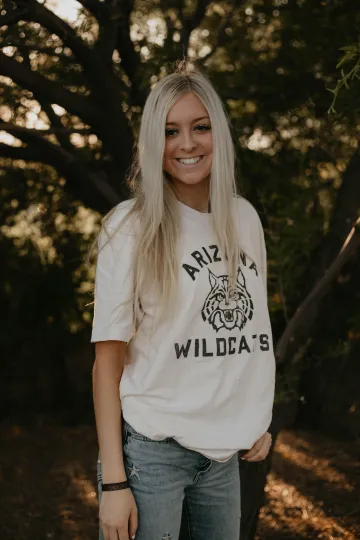
Taylor Goldberg
Taylor Goldberg is an incoming freshman pursuing a BS in Computer Science student Taylor is from Queen Creek, AZ and attended Casteel High School before attending the University of Arizona.
Why did you pick Computer Science as your major?
I chose Computer Science as my major so I could follow in my mother's footsteps. She is a Computer Science major herself and because of her, I have been heavily inspired to improve women empowerment in the tech. industry. Likewise, I have a had a fascinating admiration for technology since I was a little girl. My eyes light up every single time I see a new gadget, and I turn into a kid on Christmas morning... a kid more anxious than ever to open their toys!
What are you looking forward to this upcoming semester?
I'm looking forward to expanding my opportunities. Computer Science offers endless possibilities and I am eager to explore the unknown that lives in the technology industry today!
I chose the University of Arizona because it provides an excellent education for entrepreneurs and innovation.
Taylor responded: I chose Computer Science as my major so I could follow in my mother's footsteps. She is a Computer Science major herself and because of her, I have been heavily inspired to improve women empowerment in the tech. industry. Likewise, I have a had a fascinating admiration for technology...
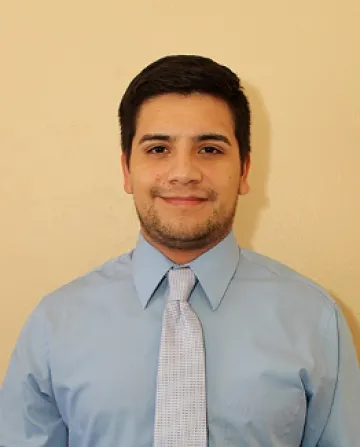
Aaron Valenzuela
Aaron Valenzuela is a BS in Computer Science student and recently joined our UA Tutoring Center team. Aaron is a native Tucsonan and attended Pima Community College before transferring to the University of Arizona.
Why did you select computer science? How did faculty at Pima influence your decision?
As a child, I was always on the family computer until one of my siblings had to kick me off of it. I mostly played cheap flash games but I was also aware of the immense amount of vastly different information that was swirling around on the internet that allowed me to learn about almost anything I wanted to. I remember thinking at a young age that a computer wasn't a complete inanimate object and that they had to have some kind of human feelings because of how much computers are capable of doing. I really enjoyed spending my time on a keyboard so I decided at an early age that I wanted to do something involving computers. The hardware side wasn't very appealing to me so I decided to try the software side since I'm more familiar with programs already and I wanted to learn how computers worked behind the scenes. Computer science answered many of the "how?" questions that I've always asked myself growing up playing on my computer. How does the computer know to end the game when I lose all my lives? How does this game know exactly where I left off since the last time I opened it? I started school at Pima Community College where I got my AGEC-S and completed my general classes so that I was able to transfer to the University of Arizona and pursue a bachelor's degree in computer science. During my time at Pima I took my first programming class that I really struggled in. I was very disappointed because it was something I've always dreamed of doing and I began to question if I was even competent enough to pursue this type of career. But I was not ready to give up just yet! I took a Discrete Math class at Pima and although it was a difficult subject, I had a phenomenal professor that urged me not to give up. I decided to not switch majors and give programming another attempt at the University of Arizona once I transferred in 2018. I enjoyed everything about my intro classes and I am so glad I decided to stick with computer science. I'm happy that things turned out the way they did and I couldn't imagine myself doing something else.
What advice would you give to incoming transfer students?
My advice to transfer students is to make as many friends as you can in your classes. Talk to as many people as you can in those classes and get all of their numbers because it's extremely difficult to do this all on your own. I lean a little more on the introverted side so I wish I had broken out of my shell more when I first started because my peers have helped me multiple times when I was stuck on homework and had no idea how to move to the next step. TAs and professors won't always be available all the time, and as your classes get more specific and complicated there are less TAs available to ask for help so I wouldn't always rely on them for aid. It is also very good practice to help others when they need it as well because it improves your understanding of programming concepts and it helps to familiarize yourself more with the material.
What area/sub-area in CS are you most interested/excited about?
I am really interested in developing games and AIs. To this day, every time I'm playing a video game I tell myself: "I wonder how they programmed that? That must have taken so long to figure out." I've made a couple of games for school but my ultimate goal is to put a game out on the PlayStore or AppStore. They're so difficult to write sometimes but the end result is always worth it. Artificial Intelligence also has a strong presence in gaming which is why I'm interested in learning more about them in order to improve my game developing skills. AIs like Siri or Alexa seem so complex and it would be so fascinating to see how they work.
What are your career goals?
I really enjoy teaching people about what I do because I'm a firm believer that anyone can learn how to program if given the right tools. Everyone absorbs material differently and it's important to keep that in mind when teaching students anything. After gaining some experience in my field I would like to eventually enter a teaching position and provide the right tools to aspiring programmers that want to learn about computer science. Another one of my main goals is to utilize my skills and my career to help the LGBTQIA+ community in some way. As a member of this community I think it's important to play my part in helping the LGBTQIA+ community, especially LGBTQIA+ youth who are struggling with a high suicide rate and homelessness.
What has been a meaningful experience that you have had in the CS department?
The way CS students stick together and help each other out was an amazing experience. This type of support amongst my peers didn't really exist when I was taking my general courses. During most of my CS classes, if someone sitting at the table wasn't understanding the concept being discussed during a lecture, the rest of the table would always step in to help them out. I think every CS student understands that our material in class can be very tough sometimes so they're always more than willing to provide guidance. Piazza has helped me get through countless issues and bugs that I was having while completing my programming assignments. Almost everyone you meet is willing to help and it's a nice little community that I will miss being a part of when I graduate.
